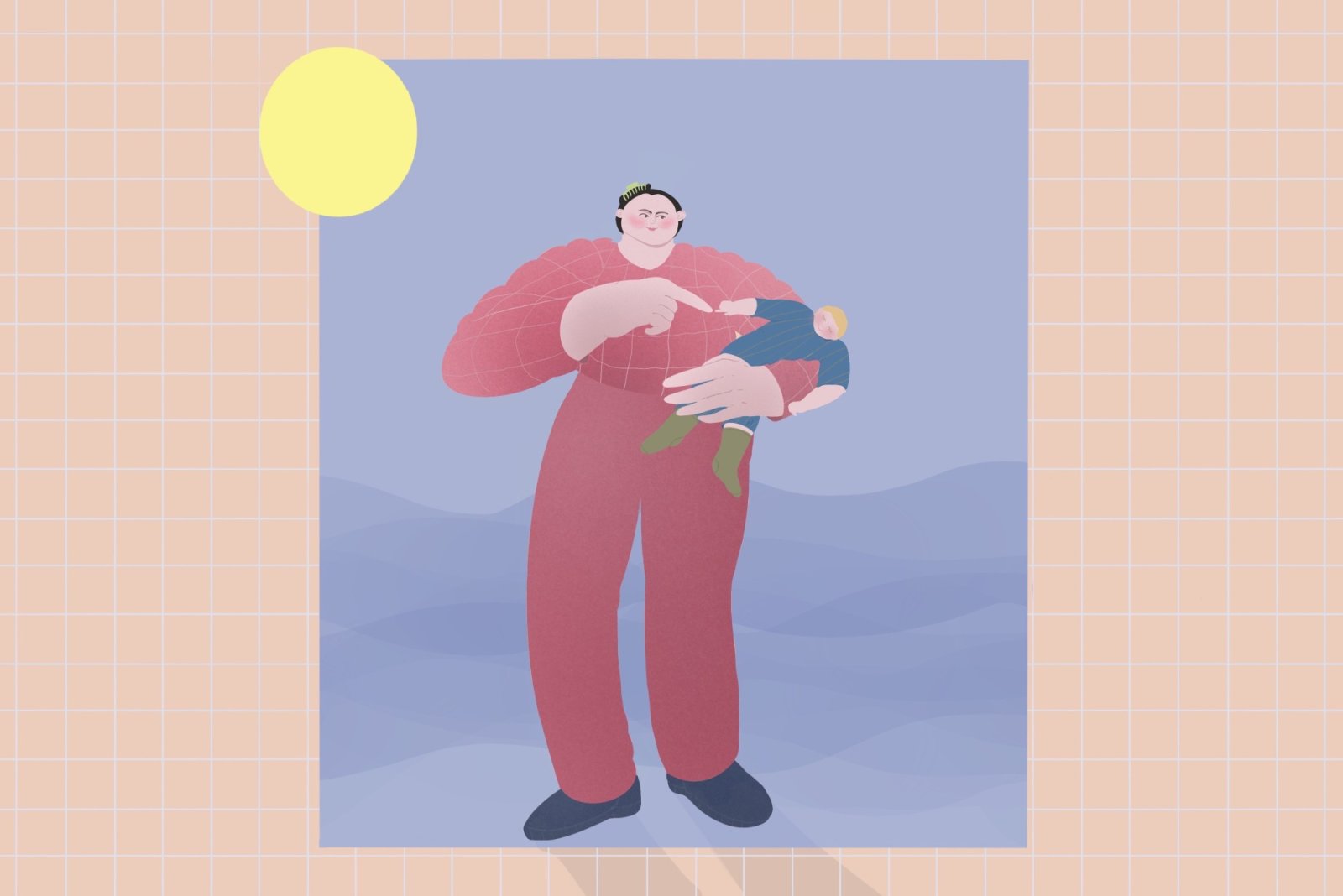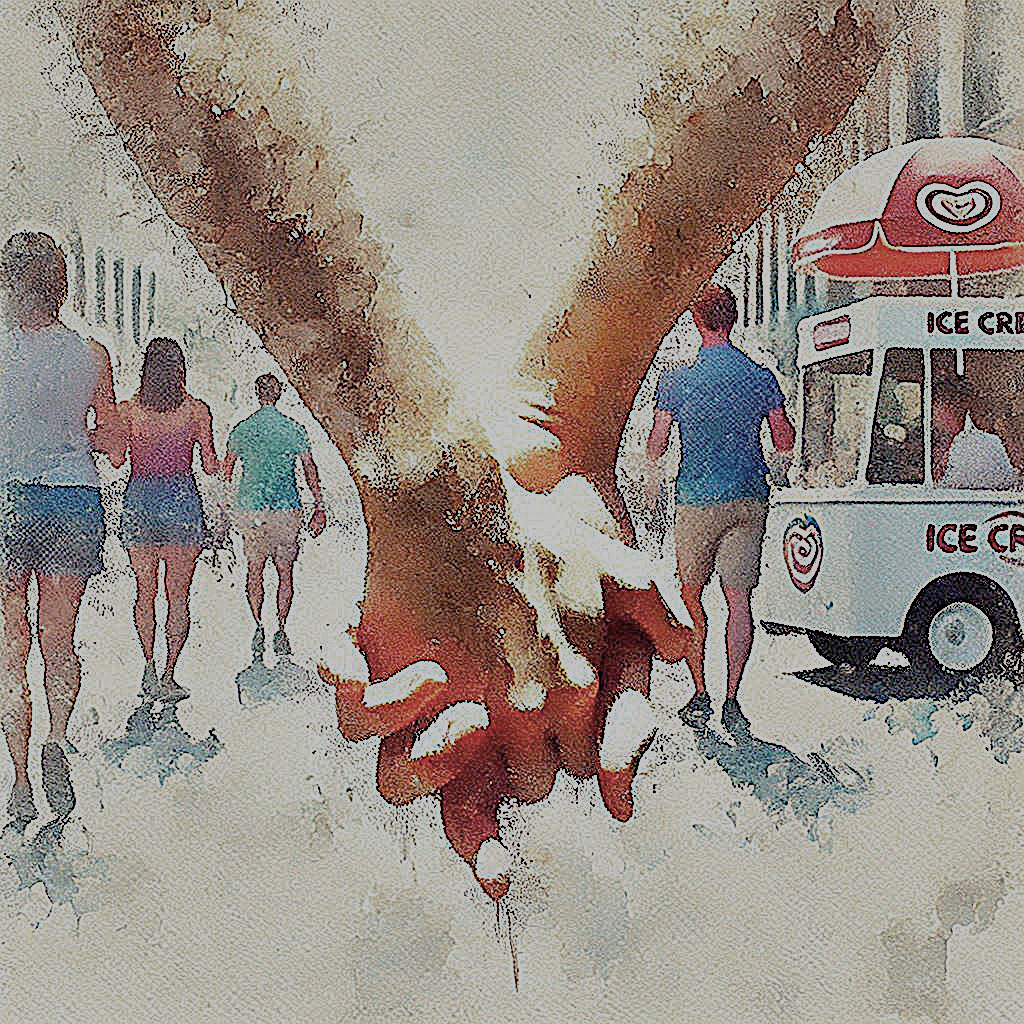
Anywhere But Here
It’s Friday when Isabella finds out she can’t have babies.
It’s raining outside. The doctor is perfunctory, kind. Genetic abnormality, he says. He says a lot of things. Isabella doesn’t understand most of them. She gets the gist. She realizes she should be taking notes; her mother will want to know what the doctor says. Allen will want to know. It somehow doesn’t matter. The result is the same. She is twenty-nine years old, and she will never be pregnant, never give birth. Adoption is a great option, the doctor says.
Isabella can’t adopt. She barely clears the poverty line. She and Allen and aren’t married. They weren’t even thinking about babies, not really. It was a pipe dream, and she went to the baby doctor on a whim, just to make sure everything was working properly. Which, apparently, it’s not.
“It’s okay,” Allen says, when she tells him. “We don’t need a baby to be happy. We have each other.”
It’s the right thing to say, but Isabella is gutted. Everywhere there are babies: on the subway, on the bus. Advertisements for baby food and baby wipes.
“We don’t need a baby,” Allen says again. They have been together four years. She loves him more than anything. For two years they were long distance, and have only recently started living together in a tiny apartment in Cobble Hill.
“I know.” Her voice is hollow.
“I don’t even like babies.”
Isabella doesn’t like babies either, if she’s being honest. She doesn’t like their squishy bodies, their squalling voices, their overwhelming need. She likes her life, with her whiskey and her cigarettes that Allen hates and her sushi on the weekends and her house with lots of sharp-edged furniture.
“You’re right. It’s fine.”
She goes to work on Monday and they’re having a party for someone in the art department who’s pregnant.
Isabella works in accounting at a small arts magazine. The work is boring, but she’s good with numbers and it pays the rent on their little apartment, so she slogs on the F train each morning to the office to gossip with the other women in the accounting department over coffee in the break room. Very little actual work gets done. Occasionally their boss comes out of her office and they all scatter like roaches.
There’s cake and ice cream at the party and everyone is milling around talking about baby names. It’s a girl. Isabella feels something clench in her stomach.
She texts Allen, but he is at work—he is a paralegal—and he doesn’t respond immediately. But she walks into the break room, says congratulations to Allison, and takes a piece of cake.
“So when are you and Allen going to get on the baby train?” someone asks her.
“Oh, I don’t know,” she says, swallowing bile. “We’re not even married yet.”
“You don’t have to be married! It’s the twenty-first century!”
She fakes a smile and goes to throw up in the bathroom. Her vomit is pink-colored, the few bites of cake she managed to choke down brightening the toilet bowl.
She gulps down water from the tap and goes to her desk. This is a time for actual work, if there ever was one. She checks her email, moves some things around in a spreadsheet. She feels ill. Maybe she can go home. Get a doctor’s note. Before she knows what she’s doing, she’s walking out of the office. She’s pressing the elevator button over and over again. She’s taking the elevator downstairs. She’s out of the building, on the street. She’s free.
Isabella doesn’t know where to go, so she gets on the Q train and heads out to Coney Island. The fresh air will do her good, she thinks. She wants the ocean, the sand, the salty air. She wants to walk on the boardwalk and eat a hot dog and get yelled at by the guys who hang out by the beach. The train lulls her to sleep, and before she knows it, she’s there.
On the beach, the air is bright and warm. The rain from the weekend has cleared up, and the sun is shining. Even though it’s Monday, there are families everywhere, children running back and forth across the boardwalk, being chased by their parents. A baby toddles in front of Isabella, and by instinct, she picks it up. “Whose baby are you?” she asks. “Who do you belong to?” The parents are nowhere to be found.
Already walking, he’s at least a year old, with chubby cheeks and an angelic face. She walks a few feet, staggering under the weight. She’s unaccustomed to carrying children.
“Aren’t you cute?” she says, humming under her breath, as she transfers him from hip to hip. She starts burbling at him in baby talk. It comes naturally. Suddenly having a baby doesn’t seem so impossible. She has a baby now. She could just hold onto this one, and everything would be alright.
She carries him down to the beach, to walk around in the waves. They play in the water together. He’s especially fascinated by the sand, tripping and falling but getting back up every time, and laughing hysterically as the water splashes over him. Isabella can’t help but laugh too; his joy is infectious. She doesn’t wonder where his parents are, or what has happened to lead him to her. She just enjoys their time together, playing in the water and sand.
They build a sandcastle, Isabella showing him how to shape the towers and adorning them with rocks and seaweed. They walk from Coney Island all the way to Brighton Beach, Isabella carrying the baby on her hip. She buys him a hot dog and cheese fries, which are too complex for him to eat, but he has sips from her diet soda. She ignores her phone when it rings, Allen’s face coming up on the screen. This is her day. This isn’t about anyone but her.
It starts to get dark. “We have to get you home,” she says. She’s already imagining taking him home to her apartment in Cobble Hill, how she’ll explain him to Allen, and where he’ll sleep. She’ll have to buy baby supplies, baby food, diapers, all of it. That can wait until tomorrow, she figures. For the night, he can sleep in one of Allen’s old t-shirts. As she’s walking back to the boardwalk, she sees flashing lights.
“There he is!” A woman rushes towards her, flanked by several policemen. “Mi hijo. Gracias. You found him. Thank you.”
“Ma’am,” the larger policeman says to her, “you found this baby?”
He’s my baby, Isabella thinks. But she knows, instinctively, that this is the wrong thing to say. “Yes,” she says. “He was running on the boardwalk. I’ve been taking care of him.”
“Why didn’t you take him to the police?”
“I don’t know.” She honestly can’t answer this question. “I didn’t think of it. I thought his mother would find him.”
“Thank you, thank you, thank you,” the mother says. Her face is wet. She holds her baby close to her. Isabella feels sick for the second time today. She turns away. The police want to ask her more questions, and she can tell they don’t believe her story, but the baby has been returned, so there isn’t really anything they can do to her. She is released a few minutes later, after the official report is filed.
She goes home, the long train ride lulling her to sleep again. Allen will be waiting, worried. She doesn’t know what she will tell him.
Allen is waiting with his arms crossed when her key turns in the lock. “Where have you been?” he asks. “You scared me.”
“I left work early,” she says. “I had a long day.”
“Obviously,” he says. “What happened?”
“I don’t know. I lost it a little bit, I think.”
She doesn’t know how to tell him what happened. She doesn’t think she will tell him. Instead, she takes off her work shoes, which she is still wearing, takes her hair out of its alligator clip, and goes off towards the bathroom.
He slips into the shower next to her, the hot water pummeling both of them. They don’t usually shower together; she likes the water hotter than he does. He winces as the water falls over the two of them, but she soaps his back, and he relaxes. “It’s going to be okay,” he says, his voice echoing off the tile.
“I know.”
“You can always come home,” he says. “You don’t have to go anywhere but here.”
“I know.”
“I’m here for you,” he says, and she says, “I know,” and opens her arms, and he wraps himself up in them, and they stay like that, under the spray, until the hot water runs out.
Suggested Reading
-
about Lollipop, Lollipop![Lollipop]()
Featured • Fiction • Nonfiction
Lollipop, Lollipop
The figure moved slowly, deliberately, its shrouded head turning towards Josh. Those eyes—sharp and frigid as icepicks—stared at him. The man’s black lips never moved, even as a word pierced him like a yell: “Beware.”
Featured • Fiction • Nonfiction
-
Featured • Fiction
-
Fiction



